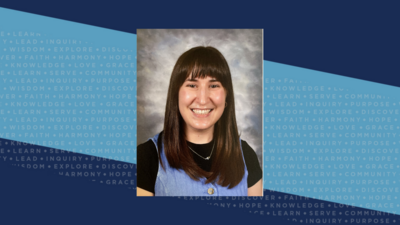Job Outlook/Opportunities and Salaries for a Reading Specialist

Connect, Educate, Support: Reading Specialist Jobs Await Through Concordia
If literacy and education are your callings, preparing for any number of reading specialist jobs can help you make lasting changes and immeasurable impacts on the lives of those who need it most.
Based on an analysis of test scores from the National Assessment of Educational Progress, 25 million children in the U.S. cannot read proficiently, according to the nonprofit Reading is Fundamental (RIF). Furthermore, some 93 million adults are only able to read at or below the basic level required to successfully contribute to society, and 43% of adults in the United States are considered functionally illiterate, according to RIF.
To successfully combat this, educators today must have the preparation and skills to fill reading specialist jobs and meet literacy issues head on.
If you’re an educator—or would like to become an educator—you can be part of the solution. If you dream of establishing safe and supportive learning environments, supporting other educators and helping students develop literacy skills that will benefit them for a lifetime, you might be wondering how to become a reading specialist or pursue a similar role.
What Is a Reading Specialist?
What is a reading specialist, and what does a reading specialist do? Reading specialists are licensed educators who help students develop and hone a wide range of reading skills while also helping other educators and administrators teach and assess student progress.
Now that you know the basics of what is a reading specialist and what does a reading specialist do, we’ll touch on the various careers in the field, the reading specialist salary you may earn and how to become a reading specialist in the first place at Concordia University, Nebraska.
What Does a Reading Specialist Do? Here Are Reading Specialist Jobs and Tasks to Explore
First off, what does a reading specialist do? As a reading specialist, your goals will essentially be to help students learn to read and write—and help them enjoy it, too. If you’re an educator—or aspiring educator—who would like to hone these skills, there are a host of reading specialist jobs and career paths you can delve into and investigate. Keeping in mind that job duties and employment requirements may vary, here are a few career paths to consider:
- Reading/literacy specialist: For these reading specialist jobs, you may work in public or private schools. Your duties could include: planning and informing curriculum; working with students to support and supplement what they learn in class; and collaborating with other educators and administrators to evaluate course work, student progress and more.
As for how to become a reading specialist, most school districts and other learning institutions require at least a bachelor’s degree and a teaching license, though an M.Ed. in Literacy with a reading specialist endorsement may be preferred. - Reading coach or tutor: These types of reading specialist jobs are often in a school or classroom setting. However, some reading tutors work privately, either virtually, in students’ homes or out of their own homes. In a school setting, as a reading coach or tutor, you may work one-on-one with students and offer instruction and strategies tailored to their individual needs. You also may work with other educators and administrators to encourage professional development and aid the implementation of literacy programs.
Credentials to become a reading coach or tutor may vary, but they generally entail at least a bachelor’s degree as well as a teaching license. However, an M.Ed. in Literacy with a reading specialist endorsement may make you a more competitive applicant. - Reading interventionist: Like other reading specialist jobs, reading interventionists adapt literacy-related instruction based on student needs. You may work with students one-on-one or in small groups to help them improve specific skills. You also may work with other educators and administrators to identify students for intervention groups.
Most school districts and other learning institutions require at least a bachelor’s degree and a teaching license to become a reading interventionist, though an M.Ed. in literacy could give you additional expertise in the field. - Reading curriculum/literacy curriculum specialist: As a reading curriculum or literacy curriculum specialist, you may work for public or private schools, planning, organizing and training other educators to help students improve their literacy skills. You may also observe, analyze and coordinate literacy and reading curricula, and assist with identifying students who need a little more help.
To become a reading curriculum or literacy curriculum specialist, most schools will require you to obtain at least a bachelor’s degree. However, an M.Ed. in literacy could provide you with a comprehensive collection of tools to help you succeed.
Called to Help Students Excel in Reading? Here’s the Outlook for Reading Specialist Jobs
The literacy issues we face today will likely continue into the foreseeable future. In addition to the vast numbers of children in the United States who cannot read proficiently, there is also a growing number of English language learners in public schools who may need additional help. From 2010 to 2018 alone, the United States saw an increase of half a million English language learner students, from 4.5 million to 5 million, according to the National Center for Education Statistics.
What is a reading specialist going to do to potentially help rectify this? As these numbers continue to rise, the need for educators who specialize in literacy will grow, too. According to the U.S. Bureau of Labor Statistics (BLS), the need for instructional coordinators who oversee curriculum, develop instructional materials and more is expected to increase by 10% through 2030.
The BLS projects an average of 20,400 job openings for instructional coordinators each year throughout the decade. In addition to a growing need for literacy in schools, the BLS anticipates that many of the openings will be the result of coordinators switching occupations or retiring.
By the Numbers: What Can You Expect from a Reading Specialist Salary?
What is a reading specialist going to earn? Your reading specialist salary may vary based on several variables, from your geographical location and level of education to the type of institution you choose and the job duties you perform. The national average for a reading specialist salary base rate is $59,374, according to Glassdoor.
Depending on these factors, a reading specialist salary may also fall under instructional coordinator salaries. In 2020, the median annual salary for all instructional coordinators was $66,970, according to the BLS.
Reading and literacy coaches could potentially earn a little more. According to the job-rating site Comparably, the average literacy coach in the United States makes $75,050 annually.
Meeting your professional goals can begin with you and your literacy studies at Concordia Nebraska.
Choosing the Right Literacy Graduate Program for You
If you currently have a bachelor’s degree and you’re interested in continuing your education to pursue reading specialist jobs, you can earn the skills and credentials you need at Concordia Nebraska.
Through our fully online M.Ed. in Literacy degree program, you will learn from educational professionals who will help you gain the knowledge, experience and practical advice you need to learn how to become a reading specialist. You’ll also learn how to help students of all ages fall in love with reading and writing the English language.
Accredited by the National Council for Accreditation of Teacher Education, our fully online M.Ed. in literacy allows you to focus your graduate degree through concentration areas, including:
- Literacy with Reading Specialist Endorsement
- Literacy with Reading Specialist and ESL Endorsement
At Concordia Nebraska, we are a Lutheran community that values the development of the whole person—academically, mentally and spiritually. As an educator, we can show you how to become a reading specialist who does the same in your own classroom.
Learn more about how Concordia Nebraska can help you reach your personal and professional goals—request more information today.


